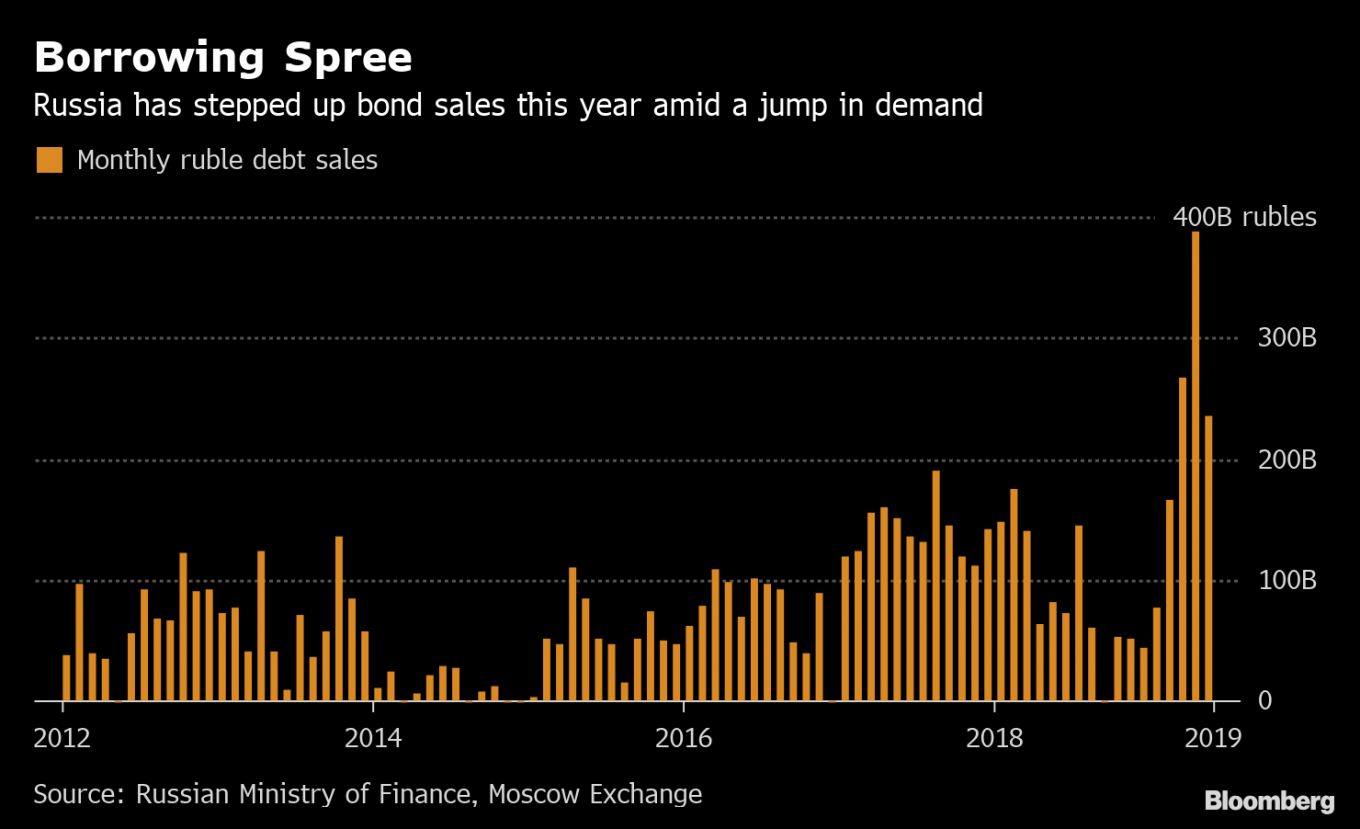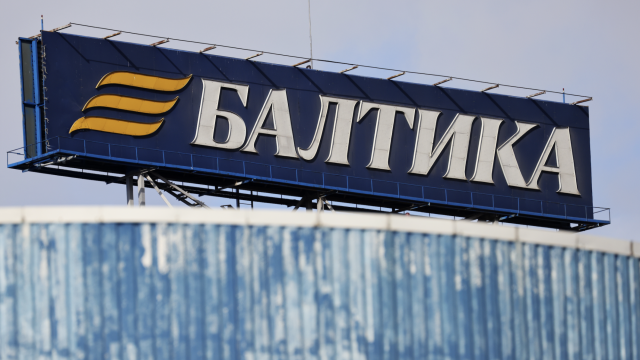Things have rarely been so good for Russian sovereign debt chief Konstantin Vyshkovsky. Foreign investors want his bonds so much that he’s already sold half his annual target and now can place them at a discount to the market.
But the fear of new U.S. Sanctions is never far from his mind. It’s a big reason why Russia may sell a second Eurobond this year – not to raise money but because he believes that if big U.S. investors such as Blackrock Inc. and the California State pension fund hold billions in Russian debt, Washington will think twice about targeting the market for fresh penalties.
“The presence of foreigners in our market gives us a certain degree of protection,’’ Vyshkovsky said in an interview in Moscow. Our integration in the global financial system “affects the probability that foreign governments will impose sanctions against Russia.’’

Russia’s Finance Ministry has learned the hard way from past sanctions scares that good times can quickly turn bad when your foreign policy is regularly at odds with the world’s biggest economy. Almost $10 billion flooded out of Russia’s local-currency bonds last year after new sanctions were implemented.
This year the threat of fresh sanctions has abated and investors tempted by the nation’s relatively high yields have piled back in, making the bonds one of the best performers in emerging markets. Foreigners currently hold more than $50 billion worth of the nation’s sovereign debt in both local and hard currencies.
The U.S. Treasury shares Vyshkovsky’s view that foreign ownership is a deterrent to sanctions. It warned in a report last year that a proposal to sanction Russian sovereign debt could cause instability in global markets due to the large number of foreign investors who hold stakes in the bonds.
Russia has been meeting this year’s demand by beefing up it’s weekly local-currency bond sales, selling more debt in the first months of the year than in the whole of 2018. Now the Finance Ministry needs to start gradually reducing the amount it offers to avoid exceeding its annual borrowing target, Vyshkovsy said. Russia is running a budget surplus so doesn’t really need to sell bonds.
“Right now it’s us, not the market participants, who are dictating the terms,’’ Vyshkovsky said. “We don’t see any reason to give a premium if there are enough buyers who aren’t asking for one.’’
'Absolutely unacceptable'
A Eurobond sale in dollars or euros could come later this year if conditions are favorable. The next sale would be smaller than the $3.9 billion Russia sold in March and Russia would be targeting “conservative, long-term investors,’’ Vyshkovsky said.
In another move to protect Russia from sanctions, the Finance Ministry is also targeting a yuan-denominated local bond sale this year. Russia’s National Depository is working with China to find a way to give buyers the option to buy the bond “in complete independence from” Western legal and clearing systems, Vyshkovsky said.
“We don’t want to offer an instrument that foreigners can only buy through Western clearing systems,” Vyshkovksy said. “Given the current environment of sanctions and trade wars, that’s absolutely unacceptable.”
A Message from The Moscow Times:
Dear readers,
We are facing unprecedented challenges. Russia's Prosecutor General's Office has designated The Moscow Times as an "undesirable" organization, criminalizing our work and putting our staff at risk of prosecution. This follows our earlier unjust labeling as a "foreign agent."
These actions are direct attempts to silence independent journalism in Russia. The authorities claim our work "discredits the decisions of the Russian leadership." We see things differently: we strive to provide accurate, unbiased reporting on Russia.
We, the journalists of The Moscow Times, refuse to be silenced. But to continue our work, we need your help.
Your support, no matter how small, makes a world of difference. If you can, please support us monthly starting from just $2. It's quick to set up, and every contribution makes a significant impact.
By supporting The Moscow Times, you're defending open, independent journalism in the face of repression. Thank you for standing with us.
Remind me later.






